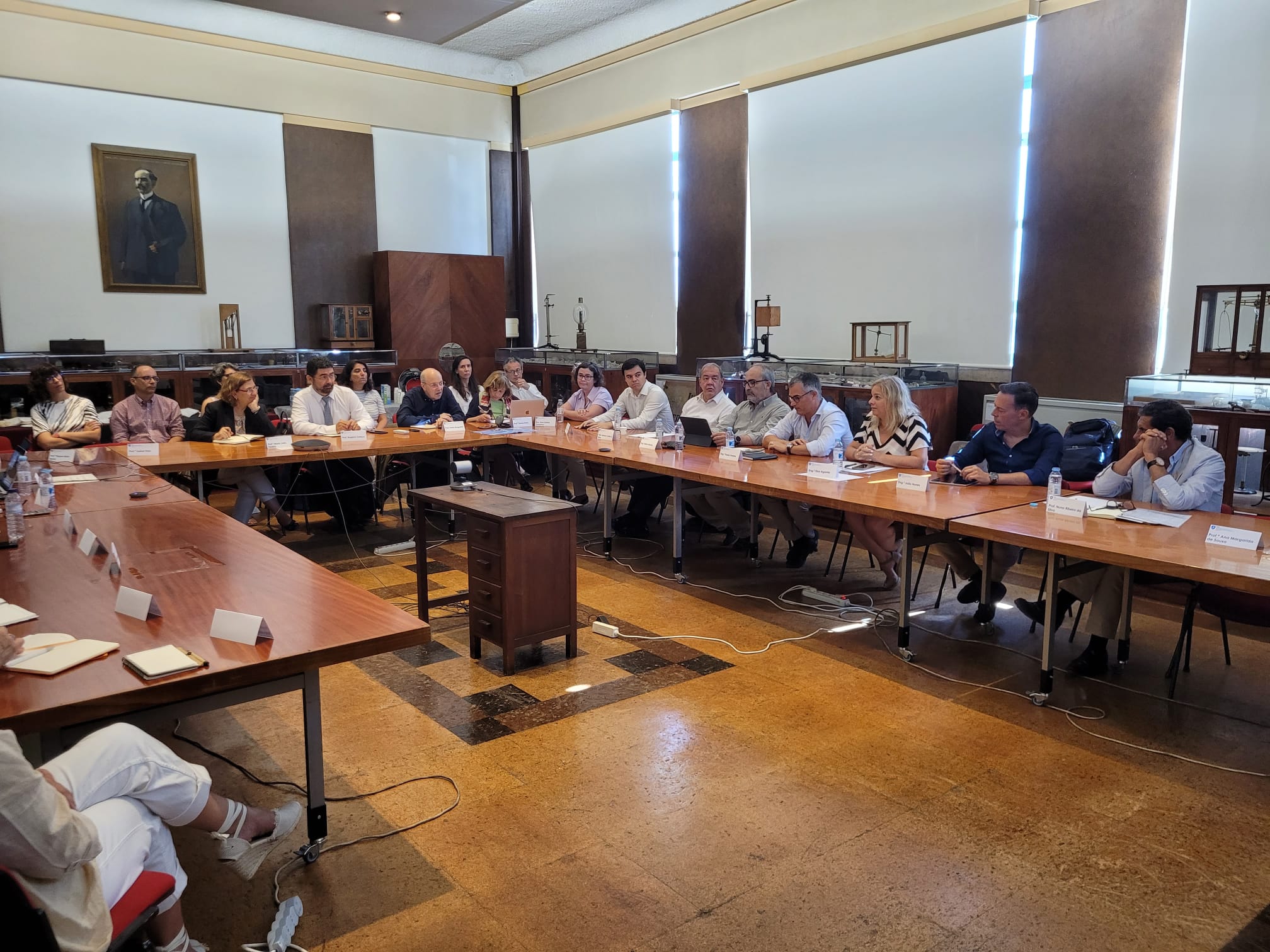Strategies to attract talent dominated the first Advisory Council of the Department of Mineral and Energy Resources Engineering

Mineral and energy resources are central to the ongoing energy and digital transitions: this should be the key to attracting more students to the Mining and Energy Resources Engineering course.
Promoting talent attraction for mineral and energy resources engineering was at the heart of the first Advisory Council of the Department of Mining and Energy Resources Engineering (DER) at the Instituto Superior Técnico (IST). Chaired by Rogério Colaço – IST's president and, temporarily, the DER's president – the DER Advisory Council included representatives from the industry, a government member, former government officials, international experts, department faculty, and alumni.
Maria João Pereira, Secretary of State for Energy and, until March 2024, DER's president, emphasized that if Mining and Energy Resources Engineering fails to attract talent, there will be no industry. Portugal and the world need industry to develop and drive energy and digital transitions.
The DER's major challenge in the coming years, according to Vice President Gustavo Paneiro, is to find collaborative strategies between academia and industry to attract young talent to sectors crucial for the development cycle in the coming decades. Geologist Ana Carina Veríssimo pointed out that the issue lies in students not recognizing all the professional opportunities that Mining and Energy Resources Engineering education offers.
In other words, as summarized by Aurela Shitza, Director for Industrial Affairs at the Industrial Minerals Association (IMA) – Europe, it is essential to translate the technical language used in academia and industry into terms that secondary school students can understand. Former Minister of Economy António Costa Silva believes that this translation effort for young people involves explaining the importance of mineral and energy resources engineering for planetary sustainability and combating climate change. "We must communicate a strong digital experience and convey the challenges of electrification and energy transition," stated António Costa Silva.
Maria João Pereira emphasized the need to showcase the sector's importance: "People are unaware...". IST President Rogério Colaço concludes that if solutions are not found, no one else will.
During the sector presentation, Amélia Dionísio, DER's Vice President, highlighted that Portugal has critical metals for energy and technological transition. Emanuel Proença, CEO of Savannah, the company developing the lithium project in the Barroso mine in Boticas, stressed that promoting these raw materials within the country is crucial because the younger generations are eager for action. According to Emanuel Proença, the message to convey is: "Come work with us on the ground to transform reality" through energy and digital transition. Former Secretary of State for Energy Nuno Ribeiro da Silva previously stated that Portugal is experiencing a "historic moment," achieving its own energy autonomy for the first time in its history during the ongoing economic revolution.
